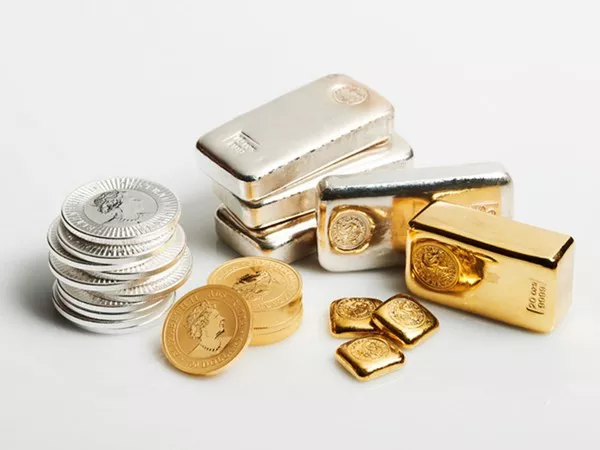When it comes to investing in precious metals, one of the most common dilemmas investors face is whether to buy bullion or coins. Both options offer unique advantages and drawbacks, making the decision a critical one for anyone looking to secure their wealth or diversify their investment portfolio. In this article, we will delve into this age-old debate, exploring five key aspects to help you make an informed decision.
1. Understanding Bullion
Bullion refers to precious metals, such as gold, silver, platinum, or palladium, in their purest form. These metals are typically cast into bars or ingots, with each piece stamped with its weight, purity, and the mint’s logo. The appeal of bullion lies in its high purity, making it a favored choice for serious investors who want to own the physical metal without the distractions of numismatic value or collector’s premiums.
Bullion is valued based on the current market price of the metal, commonly known as the “spot price.” When you buy bullion, you are essentially buying the metal at its intrinsic value, with minimal additional costs beyond dealer fees and potential taxes. This purity and simplicity are attractive aspects for many investors who want a straightforward investment option.
2. Coins – The Collector’s Choice
Unlike bullion, coins have both intrinsic value based on their metal content and extrinsic value due to their historical, cultural, or artistic significance. Coins often appeal to collectors, history enthusiasts, and investors looking for diversity in their portfolios. The value of coins can far exceed their metal content, especially if they are rare, historically significant, or well-preserved.
Coin prices can vary widely, depending on factors like rarity, condition, and demand among collectors. This variability can work to an investor’s advantage or disadvantage, making it crucial to research and understand the specific coins you plan to buy.
3. Liquidity and Portability
When evaluating whether to buy bullion or coins, liquidity and portability are key considerations. Bullion is highly liquid because it is widely recognized and traded around the world. It can be sold quickly and easily through dealers or on the open market, making it an excellent choice for those who might need to convert their investment into cash promptly.
Coins, on the other hand, can be less liquid, especially if they have niche collector appeal. However, highly sought-after coins can still be sold relatively quickly. It’s essential to consider the potential time and effort required to find a buyer for your specific coins if you decide to go the numismatic route.
In terms of portability, coins have an advantage. They are smaller and more convenient to transport than larger bullion bars. This can be a crucial factor if you’re planning to store your investment in a safe deposit box or move it to a different location.
4. Storage and Security
Another critical aspect to consider when deciding between bullion and coins is storage and security. Bullion bars can be challenging to store securely due to their size and weight. Many investors opt for private vault storage services to ensure the safety of their bullion investments.
Coins, being smaller and more manageable, are easier to store in a home safe or a secure location. However, this convenience comes with the risk of theft, so it’s essential to invest in proper security measures if you choose to store coins at home.
5. Long-Term vs. Short-Term Investment
Your investment horizon plays a significant role in determining whether bullion or coins are the better choice for you. Bullion is often seen as a long-term hedge against economic instability and inflation. Its value tends to be more stable over time, making it an attractive option for those looking to preserve wealth over decades.
Coins, with their potential for numismatic appreciation, may be better suited to investors seeking shorter-term gains or those who enjoy the hobby of collecting. However, it’s important to remember that the coin market can be more volatile, so short-term gains are not guaranteed.
In conclusion, the choice between buying bullion or coins ultimately depends on your investment goals, risk tolerance, and personal preferences. Both options have their merits, and a well-rounded portfolio may include a mix of both bullion and coins. Before making a decision, carefully consider the aspects mentioned above and consult with a financial advisor if needed. Whether you opt for the purity of bullion or the allure of coins, investing in precious metals can be a wise strategy for diversifying your wealth and protecting your financial future.


